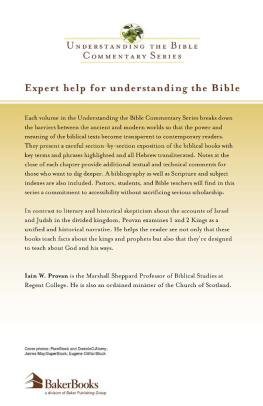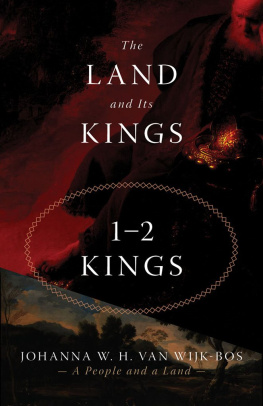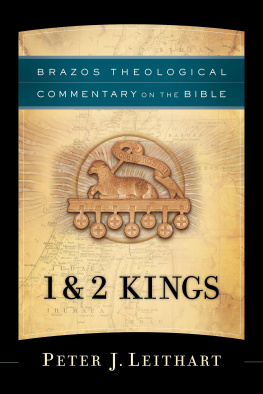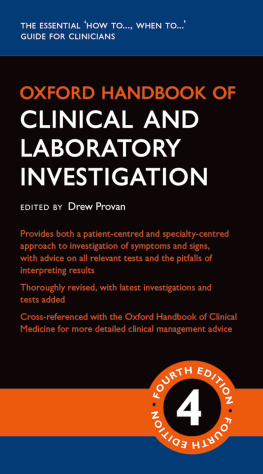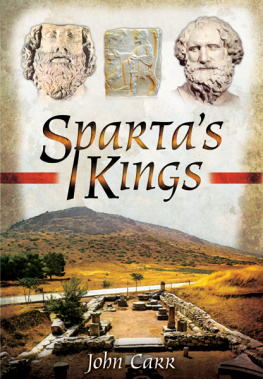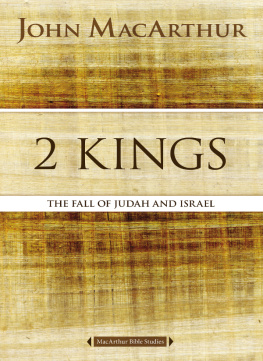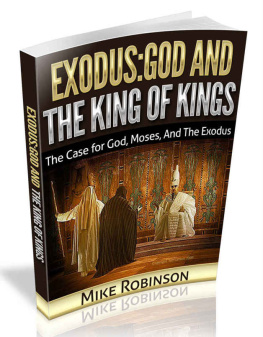
G ENERAL E DITORS
W. Ward Gasque
Robert L. Hubbard Jr.
Robert K. Johnston
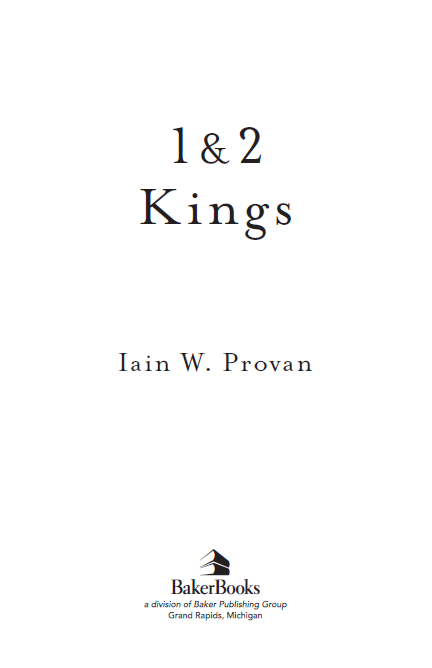
1995 by Iain W. Provan
Published by Baker Books
a division of Baker Publishing Group
P.O. Box 6287, Grand Rapids, MI 49516-6287
www.bakerbooks.com
Previously published jointly in 1995, in the United States by Hendrickson Publishers, and in the United Kingdom by the Paternoster Press.
Baker Books edition published 2012
ISBN 978-1-4412-3830-6
Ebook edition created 2012
All rights reserved. No part of this publication may be reproduced, stored in a retrieval system, or transmitted in any form or by any meansfor example, electronic, photocopy, recordingwithout the prior written permission of the publisher. The only exception is brief quotations in printed reviews.
Library of Congress Cataloging-in-Publication Data is on file at the Library of Congress, Washington, DC.
Scripture quotations are from the Holy Bible, New International Version. NIV. Copyright 1973, 1978, 1984 by Biblica, Inc. Used by permission of Zondervan. All rights reserved worldwide. www.zondervan.com
To the glory of God
For Andrew, Kirsty, Duncan, and Catherine With the prayer that they may always remember that:
The fear of the L ORD is the beginning of wisdom.
(Proverbs 9:10)
Table of Contents
Foreword
As an ancient document, the Old Testament often seems something quite foreign to modern men and women. Opening its pages may feel, to the modern reader, like traversing a kind of literary time warp into a whole other world. In that world sisters and brothers marry, long hair mysteriously makes men superhuman, and temple altars daily smell of savory burning flesh and sweet incense. There, desert bushes burn but leave no ashes, water gushes from rocks, and cities fall because people march around them. A different world, indeed!
Even God, the Old Testaments main character, seems a stranger compared to his more familiar New Testament counterpart. Sometimes the divine is portrayed as a loving father and faithful friend, someone who rescues people from their greatest dangers or generously rewards them for heroic deeds. At other times, however, God resembles more a cruel despot, one furious at human failures, raving against enemies and bloodthirsty for revenge. Thus, skittish about the Old Testaments diverse portrayal of God, some readers carefully select which portions of the text to study, or they avoid the Old Testament altogether.
The purpose of this commentary series is to help readers navigate this strange and sometimes forbidding literary and spiritual terrain. Its goal is to break down the barriers between the ancient and modern worlds so that the power and meaning of these biblical texts become transparent to contemporary readers. How is this to be done? And what sets this series apart from others currently on the market?
This commentary series will bypass several popular approaches to biblical interpretation. It will not follow a precritical approach that interprets the text without reference to recent scholarly conversations. Such a commentary contents itself with offering little more than a paraphrase of the text with occasional supplements from archaeology, word studies, and classical theology. It mistakenly believes that there have been few insights into the Bible since Calvin or Luther. Nor will this series pursue an anticritical approach whose preoccupation is to defend the Bible against its detractors, especially scholarly ones. Such a commentary has little space left to move beyond showing why the Bibles critics are wrong to explaining what the biblical text means. The result is a paucity of vibrant biblical theology. Again, this series finds inadequate a critical approach that seeks to understand the text apart from belief in the meaning it conveys. Though modern readers have been taught to be discerning, they do not want to live in the desert of criticism either.
Instead, as its editors, we have sought to align this series with what has been labeled believing criticism . This approach marries probing, reflective interpretation of the text to loyal biblical devotion and warm Christian affection. Our contributors tackle the task of interpretation using the full range of critical methodologies and practices. Yet they do so as people of faith who hold the text in the highest regard. The commentators in this series use criticism to bring the message of the biblical texts vividly to life so the minds of modern readers may be illumined and their faith deepened.
The authors in this series combine a firm commitment to modern scholarship with a similar commitment to the Bibles full authority for Christians. They bring to the task the highest technical skills, warm theological commitment, and rich insight from their various communities. In so doing, they hope to enrich the life of the academy as well as the life of the church.
Part of the richness of this commentary series derives from its authors breadth of experience and ecclesial background. As editors, we have consciously brought together a diverse group of scholars in terms of age, gender, denominational affiliation, and race. We make no claim that they represent the full expression of the people of God, but they do bring fresh, broad perspectives to the interpretive task. But though this series has sought out diversity among its contributors, they also reflect a commitment to a common center. These commentators write as believing criticsscholars who desire to speak for church and academy, for academy and church. As editors, we offer this series in devotion to God and for the enrichment of Gods people.
R OBERT L. H UBBARD J R .
R OBERT K. J OHNSTON
Editors
Preface
Academic man is no more an island than any other kind, and no piece of academic work is ever entirely the product of one persons efforts. This commentary, for example, was largely written during a period of sabbatical leave from the University of Edinburgh in the summer of 1993; and if leave had not been made possible, it would not yet have been written. Thanks are therefore due to my colleagues in the Faculty of Divinity, some of whom bore extra burdens because of my absence. I would like to thank in particular Dr. Graeme Auld, who has proved during my time in Edinburgh to be a most stimulating partner in dialogue about Kings, and who very kindly allowed me to read an advance copy of his interesting new book on textual and compositional matters, Kings Without Privilege (Edinburgh: T. & T. Clark, 1994). I am also most grateful to those who created the immediate environment in which I was able to work. I was privileged to hold a Visiting Fellowship at Clare Hall, Cambridge, throughout my time away from Edinburgh, and greatly enjoyed participating in the life of that community. My thanks are due to the President and the Fellows of the college for their invitation to join with them. Tyndale House, Cambridge, provided excellent accommodation and library resources, andmost important of alla stimulating academic and spiritual context in which to do my daily work. I am deeply grateful to the staff and to my fellow workers for the experience. My family remain, finally, the solid mortal rock upon which all my enterprises are built and the touchstone for their connection with reality. They endured the project bravely and coped particularly well with the discovery that the relationship between the English noun sabbatical and the Hebrew verb ba (cease, desist, rest) is a tenuous one. The book is dedicated to my children, as a token of my love for them and as a witness to my aspirations for their future.
Next page
